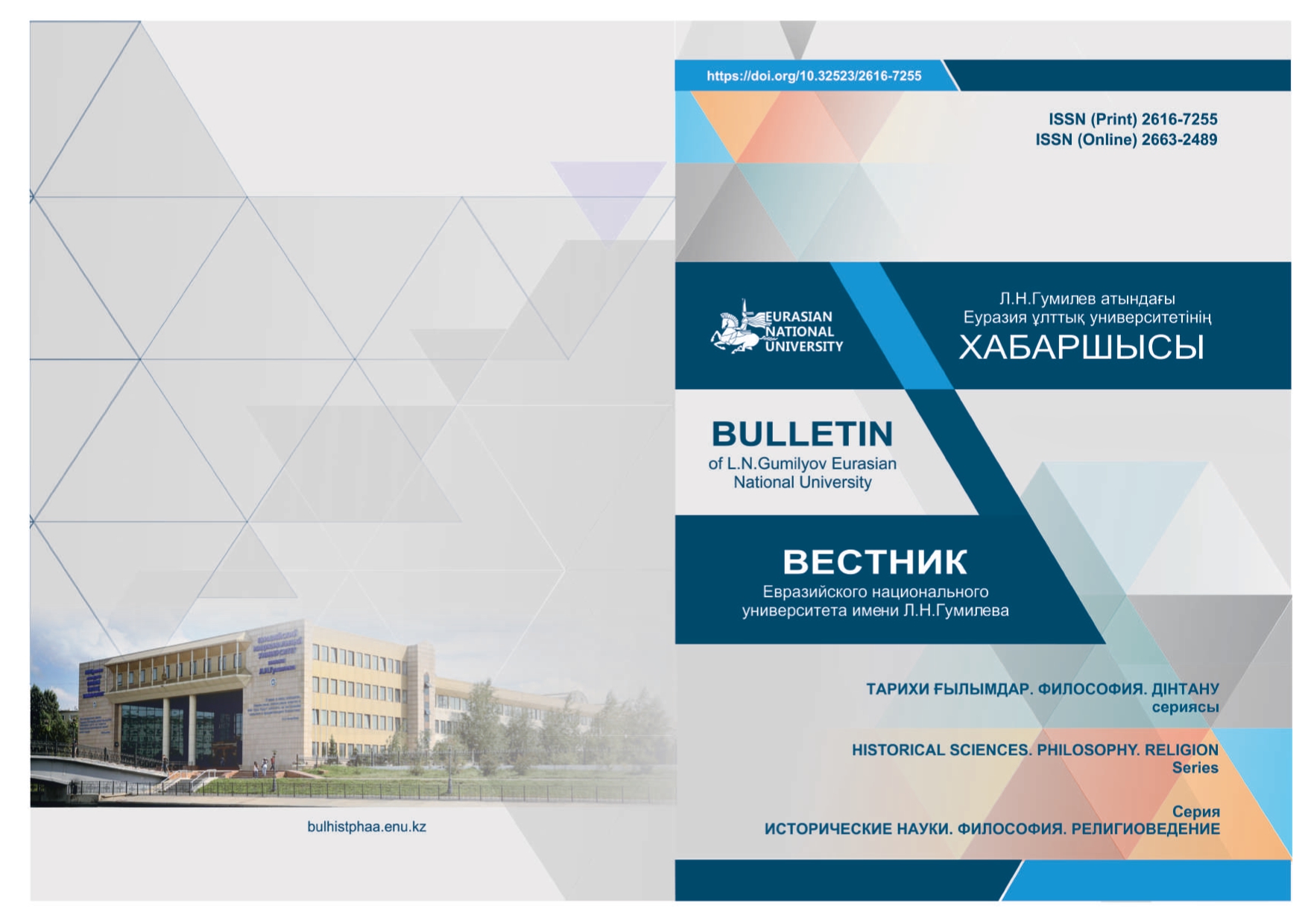Activities of the national intelligentsia to organize assistance to the Kazakhs mobilized for rear work during the First World War
Views: 222 / PDF downloads: 236
DOI:
https://doi.org/10.32523/2616-7255-2023-144-3-39-50Keywords:
World War I; Kazakhs; mobilization; foreigners; logistical work; requisition; Turkestan; Steppe region.Abstract
The article examines the role of figures of the Alash movement and the Kazakh intelligentsia in organizing assistance to Kazakhs mobilized for rear work during the First World War. With the beginning of the requisition, the activities of public committees for the organization of assistance to mobilized Kazakhs intensified. The article examines the activities and his direct participation of Alikhan Bukeikhan and his associates in the creation of a foreign department under the Committee of the Union on the Western Front, which monitored the living and working conditions of the rear guards, dealt with their nutrition and treatment. The authors come to the conclusion that numerous appeals of «Alash» figures demanding the immediate return of Kazakh workers mobilized for rear duty and the cessation of further mobilization lead to the fact that the Provisional Government was forced to issue a special decree suspending the mobilization of Kazakhs for rear work. In general, the analysis of archival materials showed that the involvement of educated Kazakh youth in the work of the Foreign Department to assist compatriots mobilized for rear work allowed them to go through a serious political school, and they fully managed to prove themselves during the subsequent revolutions.
Downloads

Downloads
Published
How to Cite
Issue
Section
License
Copyright (c) 2023 Sulushash R. Sarmanova, Mahabbat M. Kozybayeva, Khalil B. Maslov

This work is licensed under a Creative Commons Attribution-NonCommercial 4.0 International License.







